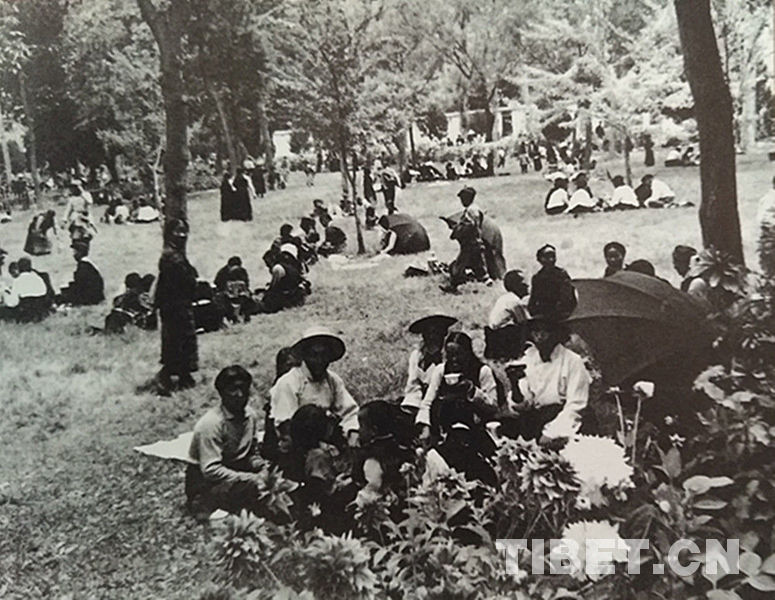Across China: Tourism whips up blissful life for Tibetan herders
Snowflakes running along the ground and shades of green and yellow trees decorate the picturesque Zhagana Mountains, northwest China's Gansu Province, into a palette, attracting throngs of tourists despite the cold weather.
Rinkho, a former Tibetan herdsman whose house now offers visitors a weekend idyll, serves his guests with steaming hotpots.
"I thought I would be stuck with cattle, just like the older generations," said Rinkho, the 39-year-old homestay owner in Tarlag Village of the province's Tewo County.
It used to take him a day's ride on a motorcycle to get to his meadow. The bleak pasture left the lone herdsman doleful memories of talking to himself and yaks as an escape from the solitude.
The turnaround didn't come too late when the local government found out that the varied terrains and unique ethnic customs could open up new avenues of diversified career choices for locals.
In 2015, the Gannan Tibetan Autonomous Prefecture, where tens of thousands of farmers and graziers like Rinkho scraped a living, embraced the idea of "all-for-one" tourism and galvanized local herders into taking up jobs in the tourism and hospitality sector.
Muddy trails were revamped into concrete highways, accommodations and restaurants sprouted, and Rinkho's shabby bungalow was renovated into a three-story cozy villa with Tibetan ethnic features, all under the auspices of local government funds.
During peak seasons, Rinkho's homestay sees visitors galore as the distinctive holiday inn offers delicious dishes and a tranquil tearoom to their heart's content. He now rakes in more than 300,000 yuan (about 45,570 U.S. dollars) a year.
Lhamogya, once a cattle herder, now runs a lively inn in Kasho Village, Luqu County in the prefecture, providing a variety of riveting folk custom experiences for his guests.
Activities like horse riding, dancing in circles, and tasting home-made yak jerky, yogurt and yak butter tea offer an ideal idyllic life for city dwellers.
Wang Luoying, 28, a tourist from Hangzhou, capital of east China's Zhejiang Province, brought along her parents to the sleepy Tibetan village. "Though our dance was simply a monkey-like imitation, it was the passion and unique ethnic culture that really mattered," Wang said.
Last year alone, Kasho Village received 800,000 visits, with more than 300 fellow villagers working in the tourism sector. The homestay business paid off handsomely as each household at the village's 52 homestays earned more than 30,000 yuan.
Tourism has spectacularly changed the lives of Tibetan herders. In the first nine months of 2020, the Gannan Tibetan Autonomous Prefecture saw nearly 15 million visits, up 13.7 percent from the same period last year, generating a revenue of about 7.4 billion yuan.
Tibet Stories

Across China: Highland barley turns cash cow for Tibetan farmers
Once reeling under poverty with barely enough harvest to make ends meet, Tenzin is now able ...

